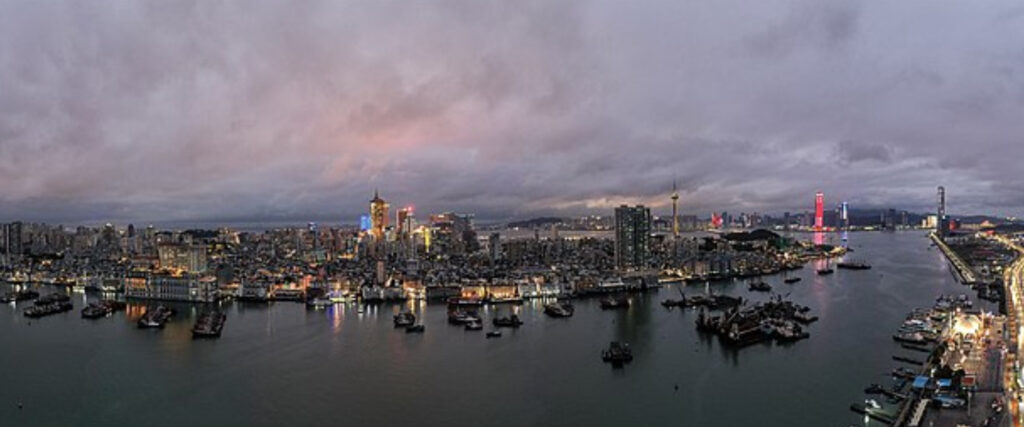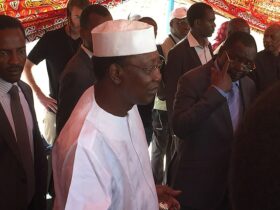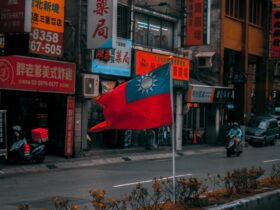LOS ANGELES — On Sept. 12, Macau held its seventh legislative election. Candidates competed for 14 directly elected seats, in addition to the 12 seats that were indirectly elected from professional sectors and appointed by the chief executive. Notably, the election’s turnout rate hit a record low. Only 42% of eligible voters went to the polls, numbers significantly below the turnout rate of 57% from the previous election, held in 2017.
The election was nothing short of controversial. Prior to election day, the Electoral Affairs Commission disqualified 21 candidates in the direct election, citing that the candidates did not “uphold the Basic Law of Macau or pledge allegiance to Macau.” This was the first time since the recent government’s entry into power that legislative election candidates were disqualified.
Despite the low turnout rate, the number of invalid votes increased drastically. Out of the 137,279 ballots received, nearly 3,000 of them were blank votes, a three-fold increase compared to the last election. One ballot read “rubbish election,” while another contained the name of Antonio Ng, one of the disqualified candidates.
Mary, a USC student from Macau who asked to use a pseudonym for safety reasons, believes that while the turnout for the election was low, the vote was still important and widely-discussed.
“I think it has been a hot topic in Macau, especially since there’s usually not much talk about politics in my age group or above,” Mary said. “I also thought that the legislative members were very active in trying to… spread awareness and raise votes”
Macau was handed over from Portugal to China in 1999, becoming the second Special Administrative Region of China after Hong Kong. As Macau is the only Chinese territory where casinos are legal, the region is famous for its gambling industry. In many circles, it has earned the name: the Las Vegas of the East.
While its neighboring city, Hong Kong, has faced several mass protests, such as the Umbrella Movement of 2014 and the Anti-Extradition Bill Protests of 2019, Macau remains politically and relatively quiet. In fact, while Hong Kong’s imposition of the National Security Law last year prompted controversy, Macau passed its own National Security Law over a decade ago in 2009.
Macau’s politics differ from Hong Kong. Before 2019, Hong Kong still had the power to block or filibuster bills through its legislative council. Meanwhile, Macau’s legislative council had long been dominated by pro-government and pro-establishment members. In the last legislative term, only four out of the 33 legislative councillors were from the pro-democracy camp.
Nevertheless, pro-democracy councillors still represented a part of the population, performing their role as legislator and arguing for policies benefiting their voters. But, this is no longer the case with the disqualification.
Sulu So, a former legislative councillor and one of the disqualified candidates, voiced his concern over the diminishing representation of the pro-democracy population in Macau.
“Without the pro-democracy camp in the legislature, the power of monitoring the government will certainly turn very weak. The legislature will become like another executive arm of the government to help push its policies,” he said.
The Macau government blamed the pandemic and inclement weather for the low turnout rate. Macau’s Electoral Affairs Commission Chairman Tong Hio-fong quoted travel restrictions as one of the reasons why citizens were not able to go to the polls.
“This situation has never happened before… many people might be on the mainland, in Hong Kong or Taiwan, and could not return to vote because of travel restrictions,” he said.
Tong ensured voters prior to election that casting blank votes would not break the law, but also emphasized that encouraging voters to cast blank votes during the campaign silence period does not align with the rules, and violators would be referred to the police.
The Hong Kong and Macau Affairs Office, the Chinese administrative agency for these two cities, emphasized that the election demonstrated the principle of “patriot governing,” and that the election process was “fair and open.”
“Macau residents have actively participated in the elections in an orderly manner and exercised their right to vote in accordance with the law, which fully demonstrates the successful practice of ‘one country, two systems’ with Macau characteristics,” a spokesperson from the office said.
Ultimately, these results were hardly surprising.
Pro-democracy candidates only won two seats, with pro-Beijing and pro-establishment camps securing the rest. The election’s implications are critical. It reaffirms the Chinese government’s intention to tighten their grip over its territories. It also posts a warning to the upcoming Hong Kong legislative elections in December, due to similar disqualification controversies and the tightening of government control.
Ivan Choy, senior lecturer at Department of Government and Public Administration at the Chinese University of Hong Kong, highlights the drop in Macau’s turnout rate as an important indicator to the upcoming election in Hong Kong.
“Historically, the pro-democracy camp in Macau did not get lots of votes anyway, whereas the pro-democracy camp in Hong Kong usually receives more than 50% of the votes,” Choy said. “You can imagine how the turnout rate would be affected in Hong Kong if pro-democracy voters do not participate in the election.”
Macau’s election reflects China’s hardlined attitude towards its special administrative regions. Despite Macau’s relatively stable political environment, the Chinese government still decided to rule out any possible opposition group in the chambers.







